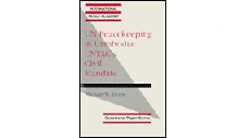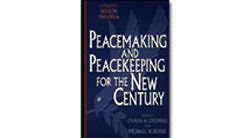
This publication, representing the culmination of a three-year research project conducted by IPA, compares the strengths and weaknesses of the UN peacekeeping operations in Cambodia and El Salvador.For more information on this book by Cambridge University Press, please click here.
Read more









